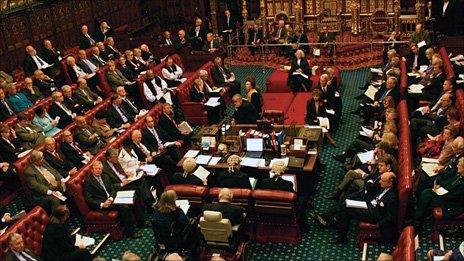Benefit cap - A tale of two moralities
- Published
- comments
Perched in the press gallery high above the Lords for the debate about the benefit cap I was struck by the fact that this was a battle between two competing moral visions.
The minister, Lord Freud, argued for a cap not to save money but to turn around lives because it was not moral, he argued, to consign children to a life in which work was not the norm - or to give more in benefits to families than the average family could earn in work.
His opponents, led by the Bishop of Ripon and Leeds, argued that it was immoral to punish families simply because they had more children. Losing a job was bad enough but then losing your home was unacceptable.
The effect of the bishops amendment would be - the government claims - to drive the cap up to the equivalent of earning £47,000 for large families with several children.
Their opponents point to the fact that, on their own figures, many of those affected by the cap are not able to work straight away even though the disabled are excluded.
The government's impact assessment chart shows that only 39% of households affected are on JSA - jobseekers allowance - whereas 22% are on ESA - employment and support allowance (or what used to be called incapacity benefit or "the sick") - and 38% are on income support suggesting they are, for example, caring for children and not expected to be in work by the system.
- Published23 January 2012
